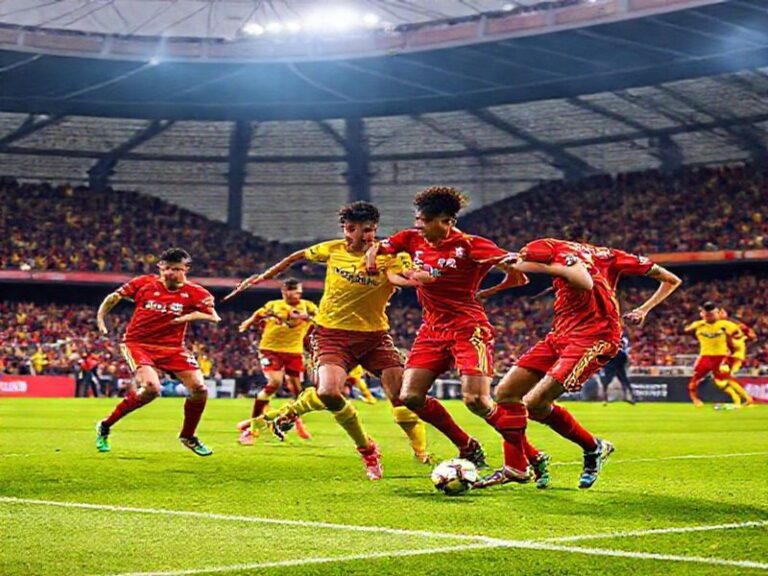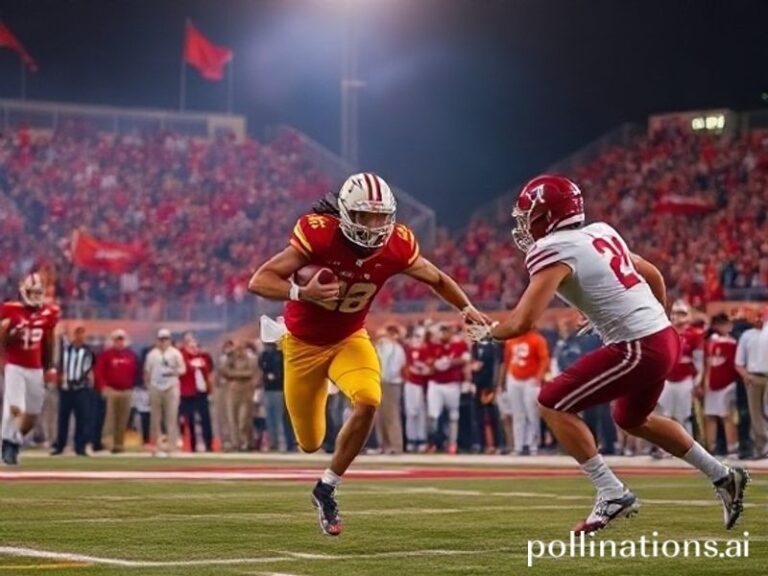Global Kickabout: How Today’s Football Matches Quietly Run the World While Pretending Not To
From the favelas of Rio to the glass-box penthouses of Dubai, the planet’s collective pulse quickens at the same hour. Somewhere a striker in Lagos is checking his WhatsApp for the same team sheet that a hedge-fund analyst in Singapore just screenshotted to his “lads” chat. Today’s football fixtures are less a schedule than a planetary séance: 1.3 billion people willing 22 strangers to kick a sphere in the “correct” direction while pretending it’s a matter of life, death, and quarterly bonuses.
Europe, ever the self-appointed curator of the sport’s soul, offers the marquee dish: Manchester City versus Real Madrid, a contest marketed as “a clash of philosophies” because Guardiola once read Sartre and Ancelotti smiles like a man who’s already filed his taxes. The game will be piped into 212 territories, including Antarctica, where two dozen researchers may or may not be running a clandestine betting ring on which glacier calves first. Meanwhile, in Buenos Aires, River Plate and Boca Juniors play the latest installment of a derby so heated that local clinics pre-book extra beds for arrhythmia cases. Both matches are separated by 6,200 miles and roughly the same emotional distance between a Michelin-starred meal and a street brawl—yet both will trend on Twitter within seconds, because outrage and ecstasy compress rather nicely into 280 characters.
Asia’s contribution is a J-League fixture between Yokohama and Vissel Kobe, notable mainly for the presence of a 38-year-old Andres Iniesta still pirouetting like a man who refuses to accept the concept of retirement. The stadium will be at 50 percent capacity due to lingering pandemic etiquette, which in Japan means polite coughing into elbow patches and the silent judgment of anyone whose beer foam exceeds regulation height. In Saudi Arabia, Al-Hilal versus Al-Nassr showcases the league’s latest acquisition, Cristiano Ronaldo, whose annual salary could bankroll a small Baltic navy. Riyadh has renamed matchday “Family Happiness & Moral Rectitude Evening,” presumably to offset the cognitive dissonance of paying a man €200 million to perform step-overs while preaching fiscal responsibility.
Africa’s schedule is blessedly less corporatized. In Accra, Hearts of Oak host Asante Kotoko in a league game that kicks off under floodlights powered by a generator older than half the squad. Viewers will watch on pay-per-view packages split four ways among neighbors who can recite the VAR protocol but can’t reliably access clean water. The winning coach will be carried shoulder-high, then fired within six weeks; the losing coach will be carried shoulder-high, then hired by the winning team. Continuity is for electric grids, not management.
North America, ever late to the party, has MLS fixtures tonight that double as focus groups for new avocado-based jersey sponsors. In Toronto, fans will chant ironically in three languages while scrolling Amazon for heated seat cushions. South of the border, Mexico’s Liga MX offers America versus Guadalajara, a derby so intense that U.S. Border Patrol once considered screening it as a stress-test for new recruits.
All of which raises the obvious: why does a spherical bladder command more global coordination than climate accords? Perhaps because football offers the illusion of meritocracy—anyone can win with enough grit, ankle tape, and suspiciously well-funded academies. Or maybe it’s simpler: the world is burning, inflation is a contact sport, and 90 minutes of choreographed chaos is still cheaper than therapy.
So as the sun arcs across time zones and betting apps ping like Geiger counters, remember that every pass, dive, and VAR-induced existential crisis is just humanity’s attempt to impose narrative on entropy. The final whistle will blow, the planet will exhale, and tomorrow the cycle resets—because hope, unlike geopolitics, fits neatly inside a scoreline.







